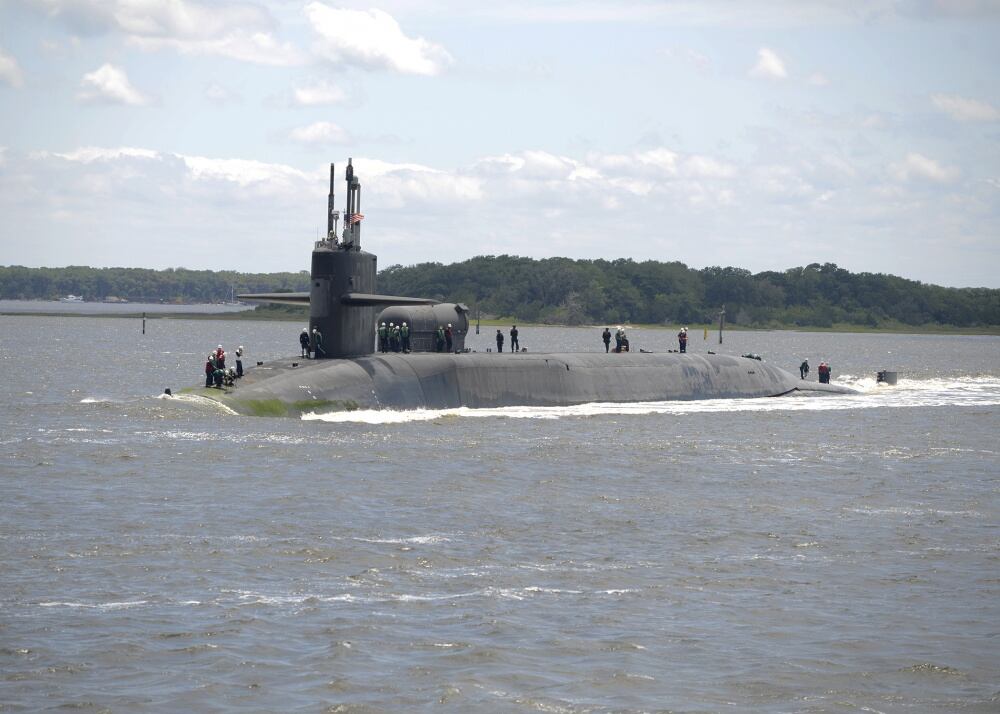No charges will be filed in the fatal accidental shooting of a sailor by another sailor last month, police have confirmed.
Machinist’s Mate Nuclear 3rd Class Dakota Ray Hering, 20, was killed on April 7 in Goose Creek, South Carolina, according to Navy and police records.
Hering had been renting a house with other sailors there while attending school at the Nuclear Power Training Unit in nearby Charleston.
When police arrived that evening, 20-year-old Cody Watlington immediately told officers “it was an accident,” according to Goose Creek police records.
“Watlington stated that he was showing Hering how to field strip a handgun,” the responding officer wrote. “Watlington advised that he was demonstrating a feature of the handgun, which required having to depress the trigger to force the slide forward off the slide rail.”
RELATED

“Watlington then states that he must have accidentally pulled the slide far enough back to chamber a round” the report states. “Watlington advised that he had the handgun pointed at Hering and depressed the trigger to force the slide forward from the slide rail and accidentally discharged a round, striking Hering in the chest.”
One sailor witness told police he believed the shooting was the result of “poor gun safety.”
Hering was declared dead at the scene.
Drugs and alcohol are not suspected to have played a role and the sailors in the house all got along, according to records.
“It was determined no criminal charges would be filed against the subject that accidentally discharged the firearm,” Good Creek Police spokesman Capt. Tom Hill told Navy Times.
While Goose Creek police reported that all six occupants of the house were sailors, Cmdr. James Stockman, a spokesman for Naval Education and Training Command, declined to release biographical information on the other sailors who were present since no charges were filed “and due to privacy concerns.”
Stockman said no disciplinary action against any of the sailors was pending.
Hering’s father, Steven Hering, said the family accepted that his son’s fatal shooting was accidental.
“They always tell you in the military, safety first,” he told Navy Times this week. “Double check yourself before you think something’s unloaded.”
“Something like this could have been prevented,” he said.
Still, Steven Hering said he felt like “some punishment should be handed down.”
Hering had recently graduated from nuke school in South Carolina and was supposed to be home, but COVID-19 rendered that impossible due to the Pentagon’s stop-movement order, his father said.
“I hear people complaining about spending all their hours with their kids,” Steven Hering said of stay-at-home orders. “We’d give anything to have them all together.”
RELATED

Steven Hering said the pandemic made everything harder after his son’s death.
The family only recently received Hering’s personal effects, and his funeral proceeded without military honors, which are now planned for a future time when it is safer.
A casualty assistance officer didn’t inform the family of Hering’s death either.
Instead, “we were notified by the county coroner over there in Goose Creek at about 1 o’clock in the morning,” Steven Hering recalled. “We were all sleeping and got woke up like that.”
A casualty assistance officer contacted the family the following afternoon, Steven Hering said, but the family struggled with deciphering who to even contact at Hering’s command.
“I didn’t really bug him too much,” Hering’s father recalled of his son. “I left him to do his own thing and as soon as this happened, I didn’t know who I was supposed to call.”
Stockman, the Navy spokesman, did not answer questions about why a Navy official did not knock on the Herings’ door and deliver the news.
“When we lose one of our own, the Navy strives to ensure that their family is taken care of,” Stockman said in response to questions about how the family was notified. “In this case, the primary next of kin was located in Nevada, far from the sailor who was in South Carolina. As such, a Regional Casualty Assistance Calls and Funeral Honors Program director assigned a (casualty assistance officer) to support the Hering family.”
Other problems that Steven Hering attributes to the pandemic hindered the family’s ability to get Hering home.
His body was flown to Sacramento because there were no flights coming into Reno, his father said.
“We missed him coming off the plane,” he said. “It just seemed that everything that should have been done a certain way didn’t get done after his passing.”
Hering was a ROTC member at his high school who was into computers and volunteered at a South Carolina horse ranch during his time off from school, his father said.
“Most high school kids, they’re more worried about themselves, but he worried about other people first,” Steven Hering said. “He just wanted to help people out like crazy.”
Geoff is the managing editor of Military Times, but he still loves writing stories. He covered Iraq and Afghanistan extensively and was a reporter at the Chicago Tribune. He welcomes any and all kinds of tips at geoffz@militarytimes.com.





